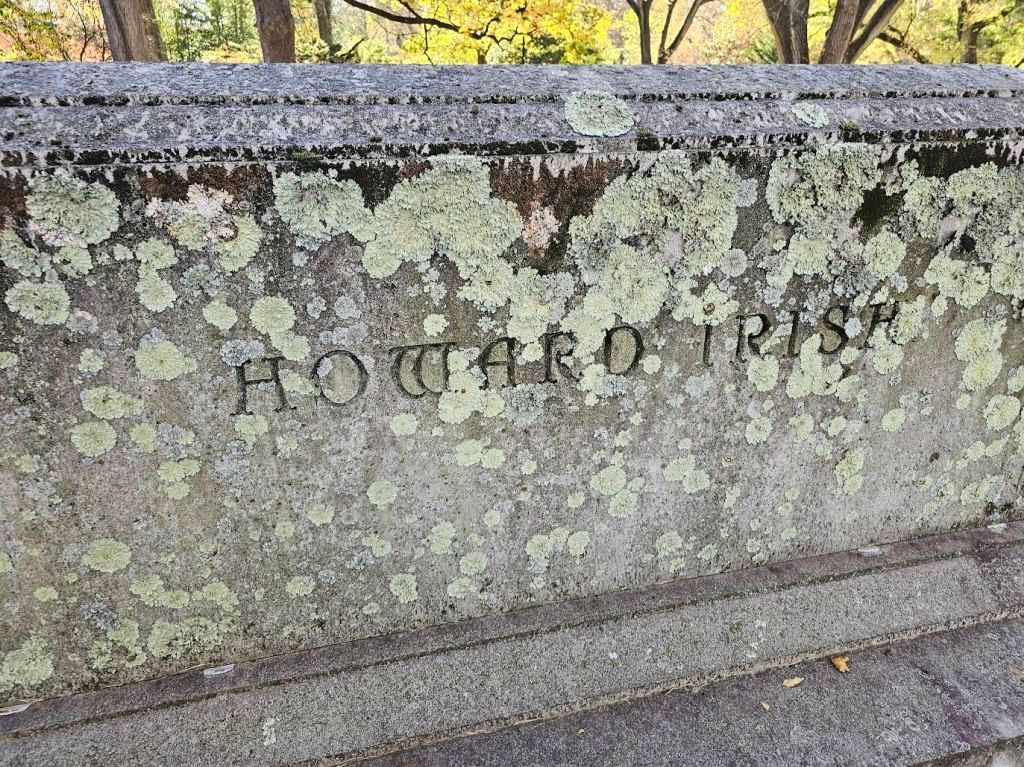12 November 2024
Many people go to Homewood Cemetery to see birds like this merlin in December 2020, however there are a lot of different sights and a few of them are refined. Do you know the cemetery is an efficient place to seek out lichens?
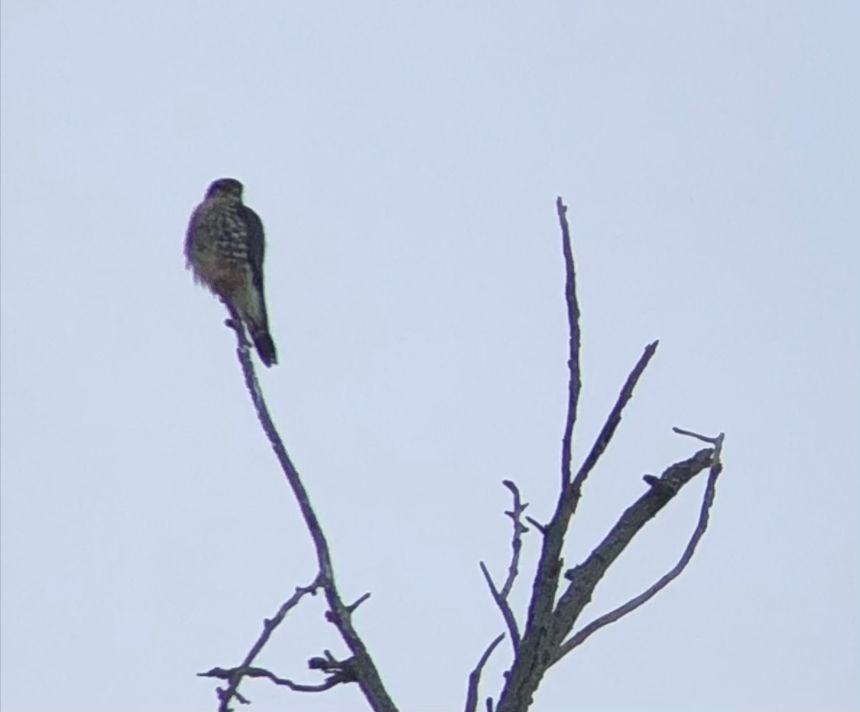
Lichens are two organisms that function as one, a symbiotic partnership of a fungus with a inexperienced or blue-green algae, generally all three. The algae’s photosynthesis feeds the fungus. The fungus gathers water and vitamins and protects the algae. This mix permits lichens to thrive in among the harshest locations the planet however they’re delicate to air air pollution. People who develop on bushes and tombstones are completely depending on the encircling air and precipitation for his or her vitamin. Finally their tissues soak up components in concentrations that mimic what’s within the air.
Since lichens are indicators of air high quality, it was pure that GASP (the Group Towards Smog Air pollution) would maintain a lichen stroll at Homewood Cemetery on 2 November led by GASP’s Laura Kuster and cemetery historian Jennie Benford.
We didn’t should stroll far to seek out lichens.
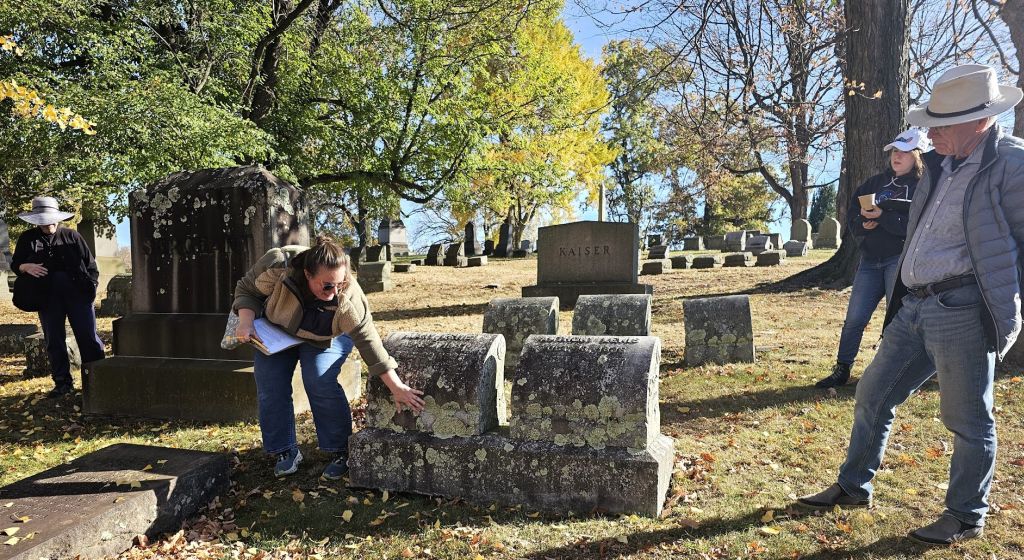
They seem like rumpled leaves caught to the gravestone. The leaves are reaching into the air.
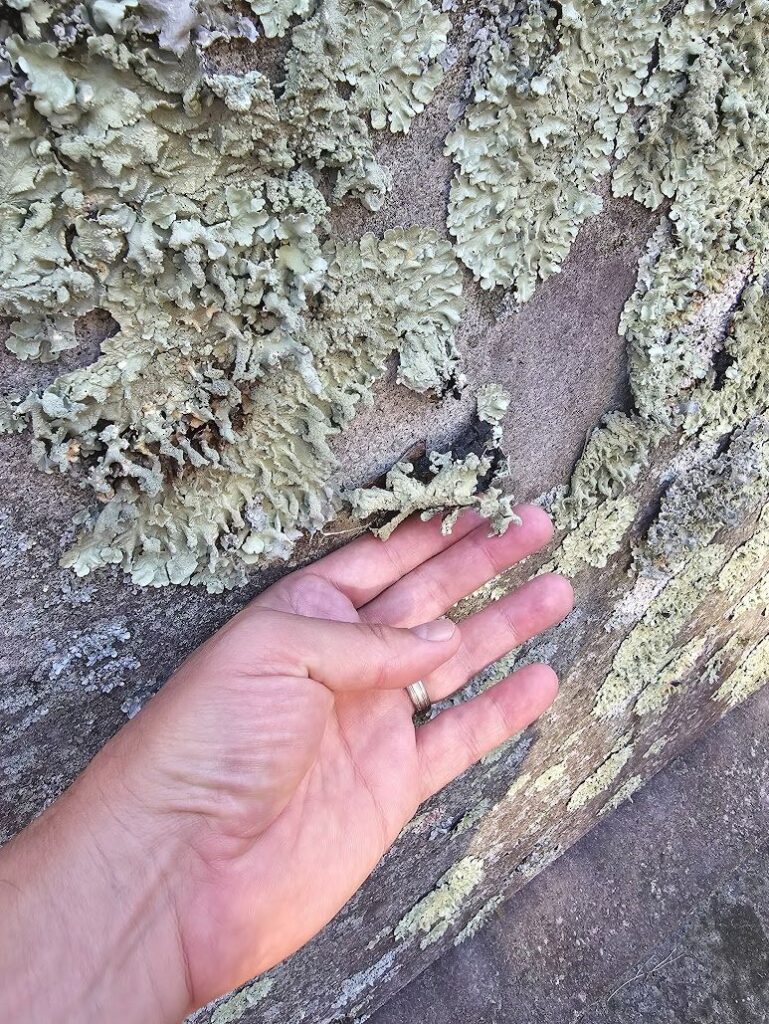
The lichen’s form offers a sign of native air high quality.
- Flat lichens (Crustose) have the least air publicity and may survive in comparatively unhealthy air.
- People who seem like crumpled leaves (Foliose) can survive in medium air high quality — not good however not unhealthy air. We noticed numerous these at Homewood Cemetery.
- Shaggy lichens that drip in open bunches (Fruticose) have the best air publicity and wish actually good air high quality to outlive. We didn’t see any of those at Homewood Cemetery.
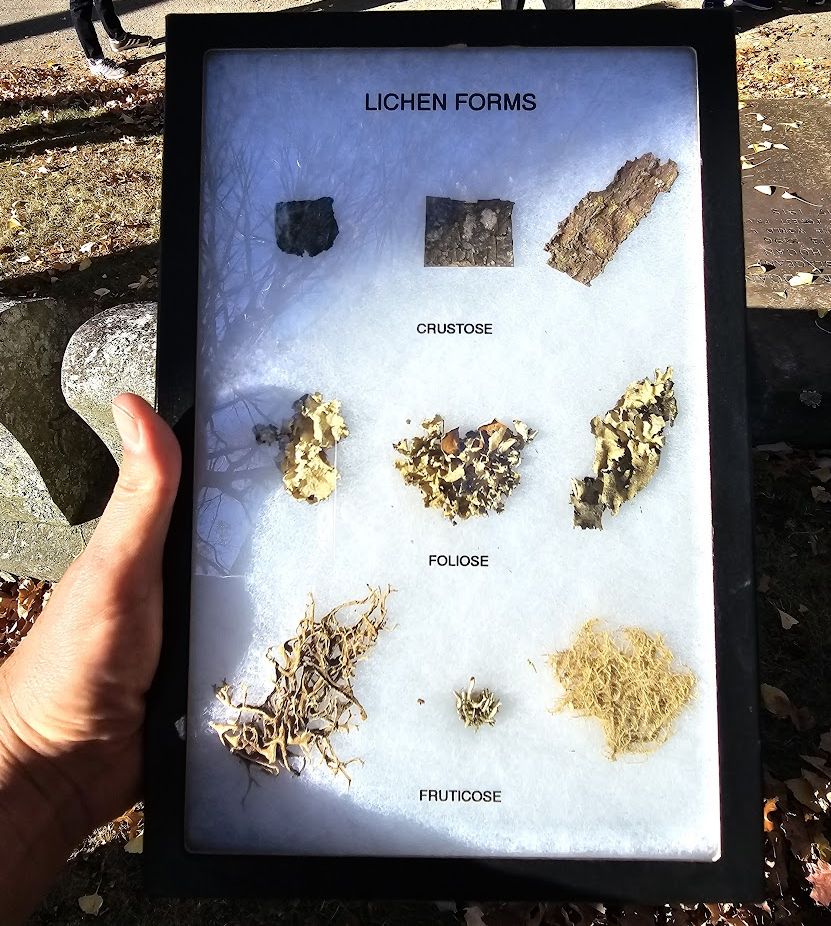
Subsequent time you’re at Homewood Cemetery take a look at the lichens. Whenever you discover the Howard Irish tombstone you’ve hit the jackpot!
